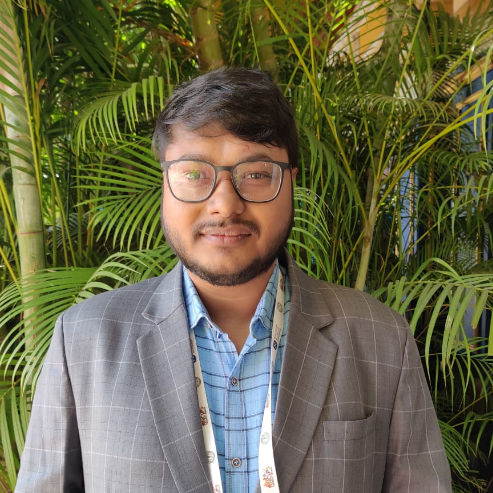How to Reduce Anxiety?
Discover natural and effective ways to reduce anxiety through lifestyle changes, mindfulness, nutrition, and holistic remedies. Learn how to manage symptoms and improve well-being.

Written by
Last updated on 3rd Jul, 2025
Anxiety is a regular reaction to stress, but when it becomes overwhelming or excessive, it can disrupt everyday life. It shows up as persistent worry, fear, or nervousness that often lacks a clear cause. Recognising the symptoms is crucial for managing and reducing anxiety effectively. Natural strategies such as lifestyle changes, dietary improvements, and mindfulness techniques can offer effective ways to manage and reduce anxiety.
Types of Anxiety Disorders
Anxiety disorders extend beyond mere stress and can exacerbate if not treated. Recognising the type of anxiety disorder is the first step towards managing it. Types of anxiety disorder include:
Generalised Anxiety Disorder (GAD): Persistent, excessive concern over various aspects such as health or finances.
Panic Disorder: Episodes of severe fear with physical symptoms like chest pain.
Social Anxiety Disorder: Intense fear during social events.
Specific Phobias: Irrational fear of particular objects or situations, such as heights or insects.
Separation Anxiety Disorder: Distress when separated from loved ones.
Common Causes of Anxiety
Several factors contribute to anxiety, many involving the interplay between biological, psychological, and environmental elements. Potential causes include:
1. Biological & Emotional Triggers
Some of the biological and emotional triggers include:
Genetic Predisposition: Anxiety can run in families.
Brain Chemistry: Imbalances in neurotransmitters affect mood regulation.
Past Trauma: Unresolved trauma can result in ongoing anxiety.
Personality Traits: Traits like perfectionism may increase vulnerability.
2. Lifestyle & Environmental Stressors
Lifestyle and environmental stressors leading to anxiety are as follows:
Major Life Changes: Moving, career transitions, or relationship shifts.
Poor Sleep Habits: Inconsistent or inadequate sleep can heighten anxiety.
Overstimulation: Digital overload and nonstop multitasking increase mental strain.
Substance Use: Caffeine, alcohol, and recreational drugs can exacerbate symptoms.
3. Physical Health Conditions
Health conditions leading to anxiety include:
Chronic Illness: Ongoing physical conditions can contribute to emotional distress.
Hormonal Imbalances: Issues such as thyroid disorders can trigger anxiety.
Lifestyle Changes to Manage Anxiety
Natural remedies and daily habits can be powerful tools in managing anxiety without the need for medication.
1. Healthy Daily Habits
Daily healthy habits to reduce stress are as follows:
Exercise Regularly: Movement like walking, dancing, or yoga releases tension and boosts mood.
Establish Sleep Routines: Aim for 7–9 hours of restful sleep with consistent sleep-wake times.
Limit Screen Time: Take breaks from digital devices to reduce mental overload.
Stay Hydrated: Dehydration can worsen irritability and tension.
Spend Time in Nature: Outdoor activities help ground the mind and improve mood.
2. Anxiety-Friendly Nutrition
Dietary habits to be followed to reduce anxiety include:
Eat Whole Foods: Fruits, vegetables, and whole grains support brain function.
Boost Omega-3 Intake: Found in walnuts, flaxseeds, and fatty fish, omega-3s support emotional balance.
Cut Back on Stimulants: Reduce caffeine, sugar, and alcohol, which may trigger anxiety.
Add Probiotics: Foods like yoghurt and fermented vegetables support gut-brain connection.
3. Mindfulness & Breathing Practices
Mindfulness and breathing practices which help improve anxiety include:
Mindfulness Meditation: Focused breathing and present-moment awareness help calm the nervous system.
Box Breathing: Inhale for 4 counts, hold for 4, exhale for 4, pause for 4 – repeat to relieve tension.
Progressive Muscle Relaxation: Tense and relax different muscle groups to reduce physical tension.
Gratitude Journaling: Noting down things you're thankful for shifts focus away from worry.
4. Herbal & Natural Supplements
Herbal and natural remedies which help with anxiety are as follows:
Chamomile & Lavender Tea: Promote relaxation and ease sleep disturbances.
Ashwagandha: May help reduce cortisol levels and support stress resilience.
Magnesium-Rich Foods: Dark chocolate, seeds, and spinach aid in calming nerves.
Valerian Root: Often used for improving sleep and reducing anxiety symptoms.
5. Emotional & Social Support
The emotional and social support required to reduce anxiety are as follows:
Talk it Out: Sharing your concerns with trusted friends or family can ease anxiety.
Join a Group: Support groups create a sense of community and shared understanding.
Volunteer or Engage Socially: Helping others and meaningful connections foster positive emotions.
6. Alternative and Holistic Therapies
Alternative therapies for anxiety management are as follows:
Yoga Poses: Child’s pose (balasana), legs-up-the-wall, and corpse pose (savasana) encourage relaxation.
Pranayama (Breath Control): Techniques like Anulom Vilom and Bhramari help stabilise the mind.
Aromatherapy: Essential oils like bergamot, lavender, and frankincense support mood regulation.
Treatment Options for Anxiety
Partnering with healthcare experts ensures anxiety is professionally examined. What works best often depends on the individual—some people benefit from therapy, others from medication, and many from a combination of both. Here’s a breakdown of the most common approaches:
1. Therapy
The most common types of therapies for anxiety are:
Cognitive Behavioural Therapy (CBT): This helps you identify and challenge the thought patterns that feed anxiety.
Exposure Therapy: For phobias or OCD, this involves gradual, controlled exposure to feared situations until your brain stops panicking.
Mindfulness-Based Therapies: These focus on staying present instead of spiralling into "what-ifs". Techniques like meditation or grounding can help short-circuit panic.
2. Medication
Common medications used for anxiety if it is not controlled by therapies or lifestyle changes:
SSRIs : First-line meds for anxiety. They boost serotonin (a mood-regulating chemical) and are non-addictive but take 4-6 weeks to work.
SNRIs: Similar to SSRIs but target serotonin and norepinephrine. It is helpful if SSRIs don’t work.
Benzodiazepines: Fast-acting for panic attacks but highly addictive. Best for short-term crisis use. It is not for daily use.
Beta-Blockers: Used off-label for performance anxiety (like public speaking). They blunt physical symptoms without affecting mood.
Always consult a healthcare professional before taking any medications.
When to Seek Professional Help?
If anxiety persists, becomes overwhelming, or begins to interfere with your daily routine, professional support is essential. Symptoms like frequent panic attacks, prolonged sadness, or avoidance behaviours may signal the need for therapy or medical evaluation. Working with a licensed therapist or healthcare provider ensures tailored support and prevents long-term complications.
Conclusion
Incorporating consistent wellness practices like exercise, healthy nutrition, relaxation techniques, and strong social ties can create a strong foundation for managing anxiety. Recognising your triggers and adopting natural methods helps in achieving emotional balance and resilience. Whether you're experiencing occasional unease or chronic anxiety, these tools can guide you toward a more peaceful, empowered life.
Consult Top Psychiatrist
Consult Top Psychiatrist

Dr. Hasanthi Thumurothu
Psychiatrist
15 Years • MBBS, MD
Telangana
Veda speciality clinics, Telangana

Dr. Ankit Halder
Psychiatrist
7 Years • MBBS,MD(PSYCHIATRY)
Kolkata
Serenity Mindcare (A Neuropsychiatry Clinic), Kolkata

Dr. B. S. Kumawat
Psychiatrist
5 Years • MBBS, MD (Psychiatry) - NIMHANS
Sikar
Dr Bhawani Shankar, Sikar
(50+ Patients)

Dr. Anweshan Ghosh
Psychiatrist
10 Years • MBBS MD Psychiatry
Barasat
Diab-Eat-Ease, Barasat
Dr. Krishanu Chakrabraty
Psychiatrist
9 Years • MBBS, DNB(Psychiatry)
South Dumdum
Dr. Krishanu Chakrabarty Clinic, South Dumdum